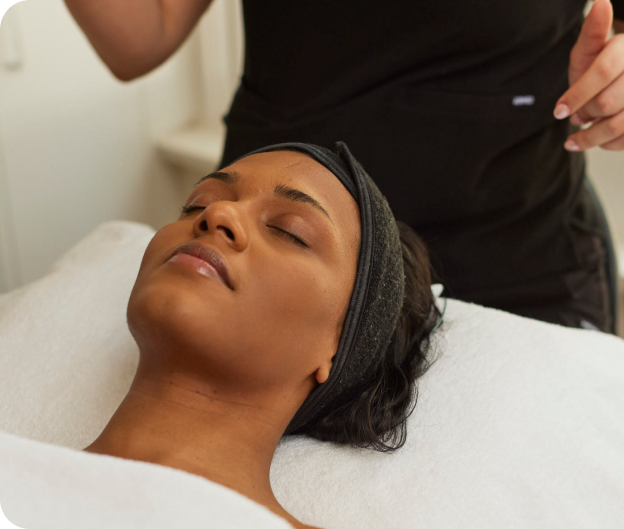As we age, cellular function slows down. Aging is a normal part of living, however there are ways we can make sure that we age healthily.
Genetics, hormonal changes and metabolic processes are all natural contributors to skin aging, however, aging can be exacerbated by external factors.
Some of the environmental factors that our skin protects against are responsible for accelerating its ageing. The best known example of this is UV radiation. Mechanical stress, living or working in a harsh environment and exposure to unsafe substances also contribute to aging of the skin.
Our epidermis is the upper layer of the skin. Over time it becomes thinner and more fragile, less efficient at re-epithelialising (important for wound healing) and pigment changes such as hypo and hyperpigmentation become more prominent. The dermis is the deeper, more structural layer of skin. As we age it loses elasticity, collagen production slows, collagen and elastin fibres become more susceptible to degradation, fine lines and wrinkles start to appear and our capacity for wound healing slows down.
All of this can cause the skin to look a little sallow and lacklustre. While it isn’t possible to stop ageing from happening, good skin care habits can certainly ease the process.
Retinol is a key ingredient to include in an anti-aging skincare routine. Retinol is a form of Vitamin A. It works by interacting with receptors in the nucleus of our skin cells. With regular use, it can help to target many of the classic signs of aging skin. Retinol strengthens the epidermis by promoting proliferation (cell turnover) of skin cells. It helps improve barrier function by reducing TEWL, and helps to improve hyperpigmentation by dispersing melanin, regulating hyperactive melanocytes and blocking transport of melanin to epidermal cells. It has been shown to improve fine lines by prompting collagen growth. It also reduces the activity of enzymes responsible for collagen degradation and can remodel dysfunctional collagen and elastin fibres. Retinol can also strengthen the fine vascular network that supports the skin, and is anti-comedogenic due to its ability to regulate sebum production. Retinol can be used daily. Apply it in the evening to freshly cleansed skin, and follow with a good moisturiser. Like other active ingredients, retinol makes the skin photosensitive, so it is essential to wear SPF30 or 50+ every day if you use this ingredient.
In some cases, using retinol for the first time can cause the skin to feel a little tight and dry. New formulations have been made with this in mind, and we now have retinol formulations which cause little to no sensitivity.
Biopelle Retiderm is a range that consists of three retinol formulations at varying strengths, including a formulation for skin prone to sensitivity. Retiderm delivers retinol to the skin via a sophisticated protein-rich, oil-free, aqueous suspension. It allows for maximum absorption and minimal irritation. This range includes a retinol option for everyone.

Another great option is the AlphaRet Overnight Cream. This cream combines alpha hydroxy acid and retinol leaving skin looking rejuvenated with little-to-no irritation. AlphaRet delivers maximum retinol efficacy with little to no irritation. This cream is nourishing and moisturising, and counteracts any irritation that comes with use of active ingredients.

If you are wondering if retinol is for you, or which retinol product is right for you, book in for a consultation.
Call 95274209
